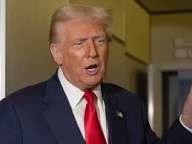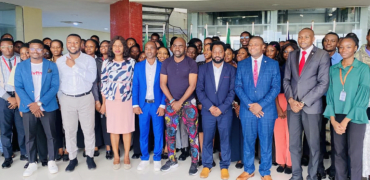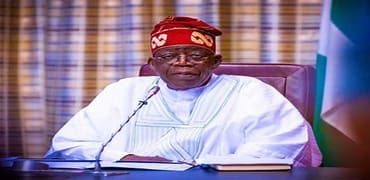Much Ado About Trump’s Threat of Military Attack Against Nigeria: Tinubu Should Not Kiss the Ring By Wale Alonge
Much Ado About Trump’s Threat of Military Attack Against Nigeria:
Tinubu Should Not Kiss the Ring
By Wale Alonge
Here is my take on President Trump’s recent bombastic threat of military action against Nigeria — supposedly to stop alleged targeted killings of Christians, a narrative that is largely unsubstantiated. There is little doubt that Trump, from intelligence briefings, knows the claim that Nigeria is complicit or inactive in these killings is false. So why is he spreading it and using it to justify military threats?
For any foreign-policy analyst, the pattern is familiar. When facing domestic political crises, Trump’s playbook is to create or amplify external crises to distract and confuse. With a paralyzed U.S. government, tanking poll numbers, and mounting legal pressures, he is overwhelmed. A foreign-policy provocation aimed at Nigeria — especially one framed to appeal to the religious-right wing of his base — serves his domestic political objectives.
Trump’s foreign policy is erratic, incoherent, and often driven by immediate domestic political calculations. Many within the U.S. State Department and national-security apparatus learn of major policy shifts only after seeing his social media posts, with little prior consultation or deliberation.
Nigeria has now found itself in the eye of Trump’s foreign-policy hurricane. Dealing with it is like having a wasp land on one’s scrotum: ignoring it risks an excruciatingly painful bite, while overreacting risks collateral damage. One thing that gets under Trump’s skin is being ignored. Yet, dealing with this effectively requires strategic calm — the sort of tactical ignoring and discreet consultation exemplified by China’s Xi Jinping. President Tinubu would do well to adopt a similar approach.
If Tinubu rushes to Washington to perform public obeisance, he risks a humiliating scene — a “Zelensky-style” dressing down staged for global cameras. The correct response is measured diplomacy, careful consultation, and a focus on protecting Nigeria’s sovereignty and interests.
There is precedent. In December 2020, Trump designated Nigeria a “Country of Particular Concern” (CPC), a designation reversed under Secretary of State Antony Blinken in 2021. Aside from timing, little is new in this round of bombastic declarations. Trump’s posture is meant to bolster his domestic credibility, distract from U.S. political crises, and highlight U.S. discomfort with Nigeria’s emerging role in Africa and its increasing engagement with China and other partners. At the same time, a small but vocal cottage industry of Nigerian actors benefits from amplifying the narrative of state-sanctioned attacks on Christians.
Domestic political undertones are also present. The controversy over Tinubu’s Muslim-Muslim ticket remains exploitable as Nigeria prepares for the 2027 presidential elections. External claims of religious persecution can be repackaged and used as leverage in internal political contests.
Bottom line: Tinubu must handle this “crisis” with calm, deep contemplation, and strategic subtlety — not with reactive gestures driven by social media hype. The Trump “wasp” has landed on Nigeria’s scrotum; it requires careful, skillful handling to prevent pain and collateral damage. High-profile displays of subservience or panic will only serve Trump’s domestic political interests. Quiet diplomacy, joint fact-finding, and engagement through ECOWAS and the African Union remain the best tools to defend Nigeria’s dignity and national interest.


















